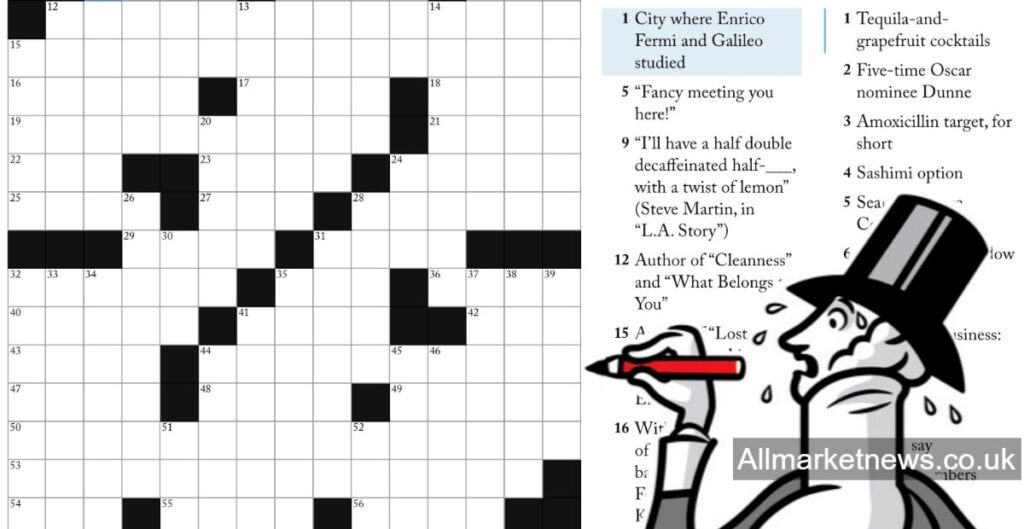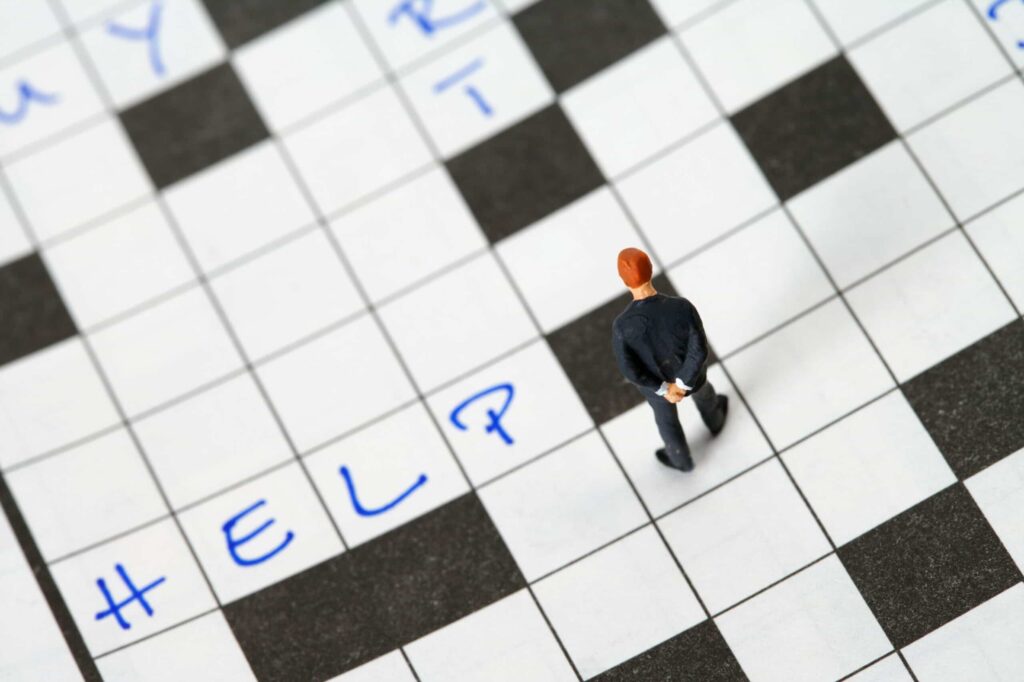Absolute junk NYT – Understanding Crossword Puzzle!
Absolute Junk in Crossword Puzzles (absolute junk nyt):
Crossword puzzles have long been a favorite pastime for puzzle enthusiasts, challenging players to think critically and creatively. One particular clue that often appears in the New York Times (NYT) crossword puzzles is “Absolute Junk.”
This clue requires solvers to come up with a term synonymous with discarded or worthless items. The challenge of deciphering such clues adds an extra layer of intrigue to the puzzle-solving experience.
As with many crossword clues, the term “Absolute Junk” can be a bit elusive, but with some thought and context, it becomes clearer.
1. The Clue and Its Answer:

When faced with the clue “Absolute Junk” in an NYT crossword puzzle, the answer typically refers to something considered worthless or refuse. In many cases, the answer might be “TRASH,” a straightforward term that fits well within the puzzle’s structure.
Alternatively, the answer could be “RUBBISH,” especially in puzzles that use British English. The key to solving this clue is to look at the length of the answer and the intersecting clues, which provide additional letters and context. The accuracy of the answer depends on how well it fits into the puzzle’s overall design.
2. Absolute Junk Crossword Clue Answer (absolute junk nyt):
The answer to the clue “Absolute Junk” in a crossword puzzle can vary based on the puzzle’s specific theme and format. Common answers for this clue include “TRASH,” “RUBBISH,” “GARBAGE,” and sometimes “DEBRIS.” Each of these terms relates to the concept of discarded or worthless items but might fit differently depending on the puzzle’s length constraints.
For instance, “TRASH” and “GARBAGE” are more common in American English crosswords, while “RUBBISH” might appear in puzzles reflecting British usage. Accurate solving requires considering the context provided by other clues in the puzzle.
Also Read: Eleanor Daugerdas – Unraveling the Legal Saga!
Other Potential Answers (absolute junk nyt):
Beyond the common answers, crossword puzzles might offer alternative solutions for the clue “Absolute Junk.” Terms like “CLUTTER” or “SCRAP” could fit depending on the puzzle’s design and theme. “CLUTTER” describes a messy or disorganized collection of items, while “SCRAP” refers to small fragments or pieces often considered waste.
Exploring these alternatives can be helpful, especially when the straightforward answers do not fit or when the puzzle features a unique theme.
Related NYT Crossword Clue Answers Today:
Keeping up with the latest crossword puzzles and related clues can enhance your solving skills. For instance, checking the answers to similar clues in today’s NYT crossword puzzles can provide additional context and insights.
This practice helps solvers become familiar with recurring themes and clue patterns, making it easier to tackle new puzzles. Regular engagement with current puzzles also offers an opportunity to refine strategies and improve overall crossword-solving efficiency.
Tips to Improve Your Crossword Solving Skills:

Improving your crossword puzzle skills involves a mix of regular practice, expanding your knowledge, and employing effective strategies. Engaging with puzzles frequently helps you become accustomed to common clues and patterns. A broad vocabulary is essential, as it allows you to recognize and understand various clues more effectively.
Additionally, studying different clue types and crossword conventions can make solving easier. Utilizing online crossword solvers and resources can also provide hints and verify answers, enhancing your overall solving experience.
Alternative Answers for “Absolute Junk NYT”:
When the standard answer for the clue “Absolute Junk” doesn’t fit the puzzle, exploring alternative terms can be useful. Alternatives like “CLUTTER,” “SCRAP,” or “WASTE” might also be appropriate depending on the puzzle’s design and theme.
For example, “CLUTTER” might fit if the clue implies a disorganized mess, while “WASTE” is a more general term for refuse. Considering these alternatives can help you solve the puzzle when the usual answers do not align with the given clues.
Why Solving Crossword Puzzles is Beneficial?
Engaging with crossword puzzles offers several cognitive and emotional benefits. Solving puzzles provides a stimulating mental exercise that enhances memory, problem-solving skills, and overall cognitive function. Regularly working on crosswords keeps your mind sharp and agile, which is especially valuable as you age.
Additionally, crossword puzzles can be a social activity, fostering connections with others who share the same interest. Completing puzzles also offers a sense of accomplishment, which can boost self-esteem and reduce stress, contributing to overall emotional well-being.
Also Read: Duke Dennis’s Height – Exploring the Physical Stat!
Importance of Solving Crossword Puzzles:
Solving crossword puzzles offers numerous advantages that extend beyond mere entertainment. The benefits encompass cognitive improvements, social and emotional enhancements, and skill development. Engaging regularly with crosswords is not only a fun activity but also a meaningful way to enrich various aspects of life.
1. Cognitive Benefits:

Crossword puzzles are renowned for their cognitive benefits. They provide a rigorous mental workout, enhancing various aspects of brain function. Regularly tackling crossword clues can improve memory retention and recall, as solvers must remember a vast array of words, phrases, and trivia.
This mental exercise stimulates the brain, helping to maintain cognitive agility and reduce the risk of cognitive decline. Additionally, solving crosswords enhances problem-solving skills and critical thinking, as each puzzle requires logical reasoning and pattern recognition.
By challenging the mind with diverse clues and topics, crossword puzzles support overall mental sharpness and intellectual growth.
2. Social and Emotional Benefits:
Beyond cognitive advantages, crossword puzzles offer significant social and emotional benefits. They provide a platform for social interaction and shared experiences, whether solving puzzles with friends, family, or in social groups.
Collaborative solving can strengthen relationships and foster communication, as participants discuss clues and strategies together. Emotionally, completing a crossword puzzle delivers a sense of accomplishment and satisfaction.
Successfully filling in the grid offers a boost in self-esteem and can be a great way to alleviate stress and unwind. The enjoyment of solving puzzles also contributes to emotional well-being, providing a productive and enjoyable outlet for relaxation.
3. Enhance Your Crossword Puzzle Skills:
Improving your crossword puzzle skills involves continuous learning and practice. Engaging with puzzles regularly helps you become familiar with common clues, terminology, and solving techniques. To enhance your skills, consider exploring a variety of puzzles, from easy to challenging, to build proficiency gradually.
Studying different clue types, such as anagrams, homophones, and cryptic clues, can also improve your solving abilities. Additionally, utilizing crossword solvers and reference materials can provide valuable hints and insights, particularly for difficult clues.
By incorporating these strategies, you can refine your crossword-solving skills and enjoy a more rewarding puzzle experience.
FAQ’s:
1. What does the clue “Absolute Junk” mean in NYT crossword puzzles?
The clue “Absolute Junk” in NYT crossword puzzles typically refers to something considered worthless or discarded. Common answers include “TRASH,” “RUBBISH,” and “GARBAGE.”
2. What are some alternative answers to “Absolute Junk” in crossword puzzles?
Alternative answers for “Absolute Junk” might include “CLUTTER,” which refers to a messy collection of items, or “SCRAP,” which denotes small fragments considered waste.
3. How can I improve my crossword solving skills?
To enhance crossword solving skills, practice regularly, expand your vocabulary, and familiarize yourself with different clue types and solving strategies. Using crossword solvers and resources can also be helpful.
4. What are the cognitive benefits of solving crossword puzzles?
Solving crossword puzzles improves memory retention, problem-solving skills, and overall cognitive function. It helps keep the brain sharp and agile, reducing the risk of cognitive decline.
5. How do crossword puzzles contribute to social and emotional well-being?
Crossword puzzles foster social interaction when solved with others, strengthening relationships. They also provide a sense of accomplishment and help alleviate stress, boosting self-esteem and emotional well-being.
Conclusion:
Crossword puzzles are more than just a pastime; they offer valuable cognitive and emotional benefits. By tackling clues like “Absolute Junk,” solvers engage in mental exercises that enhance memory and problem-solving skills. Additionally, the social aspects of solving crosswords and the satisfaction of completing them contribute to overall well-being. Embracing the challenge of crossword puzzles can enrich both your intellect and daily life.
Read More:


![[noblocc] kicked for being afk](https://relictimes.com/wp-content/uploads/2024/11/image-ezgif.com-webp-to-jpg-converter-2024-11-20T140233.477-1.jpg)


![[noblocc] kicked for being afk](https://relictimes.com/wp-content/uploads/2024/11/image-ezgif.com-webp-to-jpg-converter-2024-11-20T140233.477-1-300x200.jpg)








Post Comment